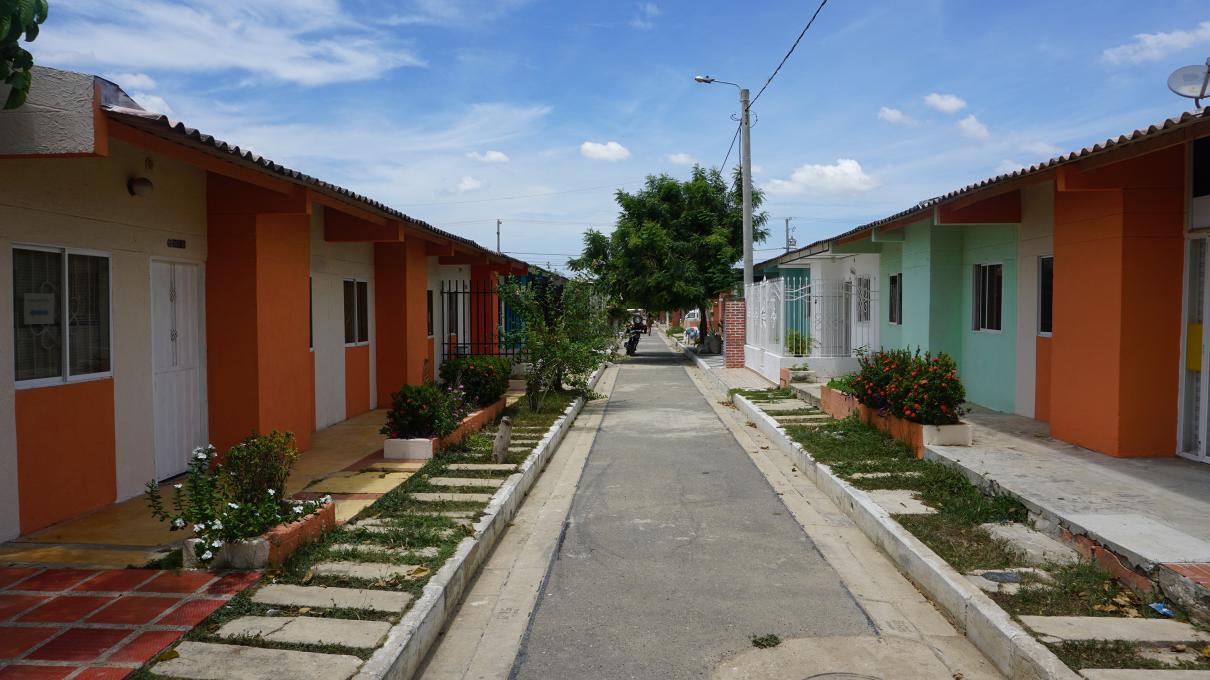Assessing Urban Resilience for Low-Income Housing Enterprises in Colombia

Laura S. Wainer and Lawrence Vale
Over the past few years Colombia has been part of a sudden, extraordinarily large, and simultaneous expansion of national housing subsidy programs in many emerging economies. The national housing policy belongs to a larger initiative called Macro Projects of National Social Interest. It involves programs on infrastructure, mining and energy and the delivery of 1million houses in four years. Fundación Mario Santo Domingo (FMSD), a nonprofit organization which works with poor communities in housing and microfinance, is a major partner of the national state in the design and implementation of the Macro-Projects. During the last years, FMSD has made significant efforts to introduce their Sustainable and Comprehensive Community Development (DINCS) model in the large scale housing projects, as the foundation is centered on “building communities, not just housing.”
FMSD is focused on expanding their capacities to enhance the development outcomes of the interventions, while engaging the national government into a major shift in policy orientation to support qualitative improvements. Given a wide range of examples that demonstrate how large scale industrial housing often fails to create socio-economic inclusion, it is imperative to assess the development outcomes of FMSD’s more comprehensive approach, since this could influence policy makers towards new rationales and approaches in Colombia. This research focuses on what kinds of specific transformations have effectively addressed the housing and housing-related needs of the FMSD beneficiaries in a safe, equitable, and sustainable manner.
The Resilient Cities Housing Initiative (RCHI) at the Massachusetts Institute of Technology seeks to help FMSD to operationalize the question of what affordable housing should afford once the question becomes “building communities” rather than just building housing. This approach assumes there are social, economic, environmental, and political relationships that connect housing to cities, and seeks to enumerate and assess how these more holistic approaches may be measured. Specifically, RCHI seeks to disseminate a broader framework for understanding housing affordability by developing a repertoire of exemplary practices and operationalizing four interconnected principles of resilience: (1) support for the community social structure and economic livelihoods of residents, (2) reduction of the vulnerability of residents to environmental risks and stresses, (3) enhancement of the personal security of residents in the face of violence or threats of displacement, and (4) empowerment of communities through enhanced capacities to share in their own governance.
Through this work we hope to: first, contribute to improving the capacities of FMSD in the design, implementation and evaluation of their projects. Second, to establish an evaluation system to measure impacts in the mid and long term. Third, to document and share FMSD’s approach for learning and knowledge transfer purposes. Finally, RCHI aspires to provide sufficient evidence to influence policy makers towards a more sustainable, equitable and efficient allocation of housing investments in Colombia.
Learn More
Wainer, Laura Sara, and Lawrence J. Vale. "Wealthier-but-poorer: The complex sociology of homeownership at peripheral housing in Cartagena, Colombia." Habitat International 114 (2021): 102388. https://doi.org/10.1016/j.habitatint.2021.102388


